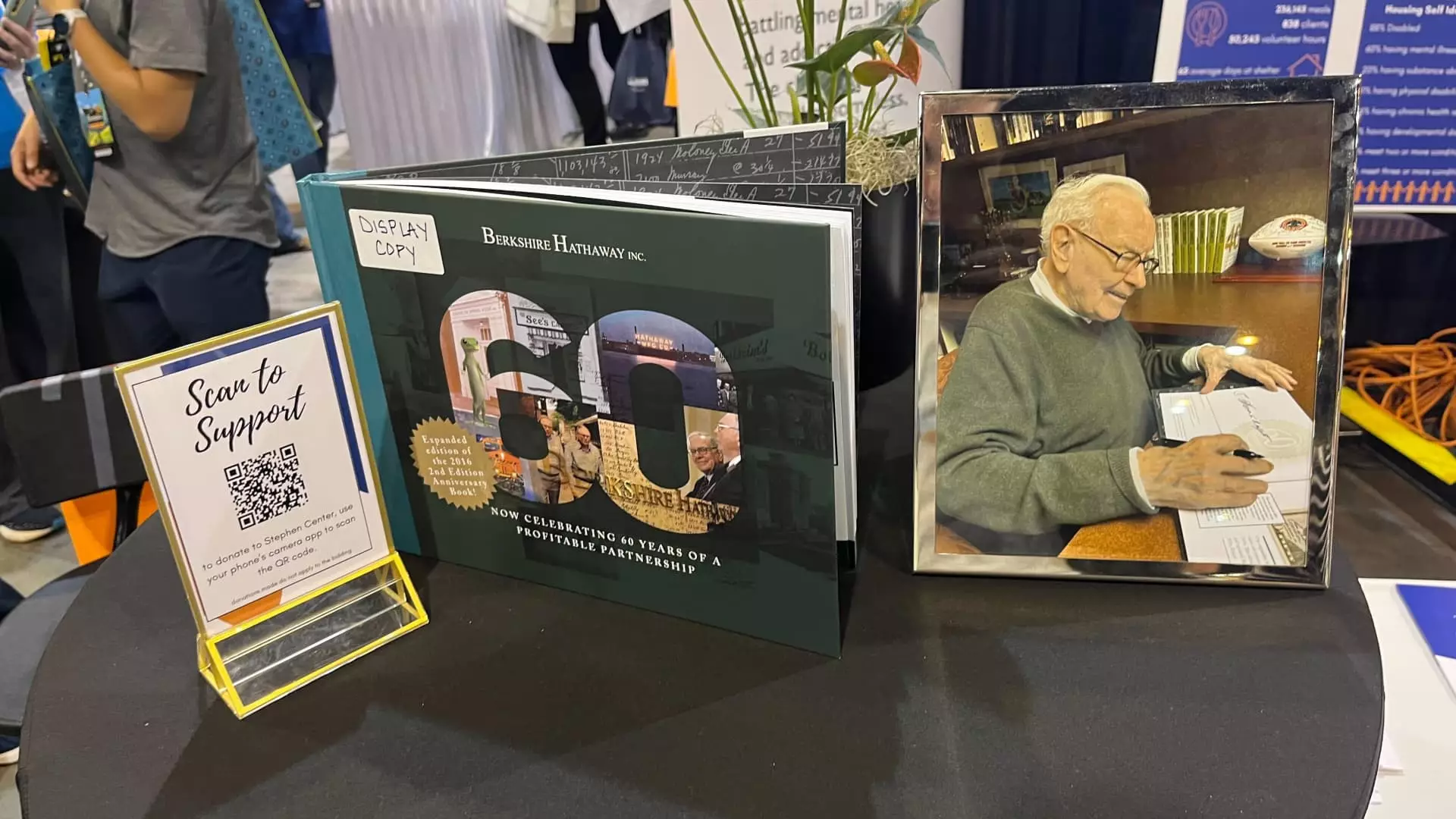The recent annual meeting of Berkshire Hathaway in Omaha, Nebraska, transformed into a philanthropic spectacle, with shareholders eagerly diving into a silent auction for memorabilia signed by the revered Warren Buffett. In a world often dominated by self-interest and corporate greed, the fervor surrounding this event stood in stark contrast, shining a light on collective charity that can be catalyzed by business leaders. The auctioned items, particularly the exclusive anniversary book “60 Years of Berkshire Hathaway”—signed by Buffett and co-author Carrie Sova—raised a staggering $1.3 million for the Stephen Center, a local charity focusing on homelessness and addiction recovery. Buffett’s commitment to match every dollar contributed is a testament to his lasting dedication to social causes, further highlighting the unique platform he has created for charitable endeavors amidst his business ventures.
The Heart of Omaha: Supporting Local Needs
As attendees vied for signed books, the narrative transcended mere memorabilia; it became a powerful story of community spirit. The Stephen Center serves as a crucial resource for Omaha, addressing the issues of homelessness and addiction recovery that plague the city. The growing demand for these services is no mere statistic; it reflects a stark reality that many families are struggling, with the homeless population increasing nearly 10% year-over-year. An organization like the Stephen Center plays a vital role in constructing safe spaces for those in need, and Buffett’s endorsement carries immense weight. When prominent figures take a stand, they galvanize both local support and larger societal awareness, addressing the pressing issues that often languish in obscurity.
Buffett’s event showcased something much deeper than financial transactions; it created a narrative of hope for communities grappling with hardship. Shareholder Matthew Rodriguez exemplified this sentiment, bidding $50,000 not merely for the artifact itself but for the cause it represented. For him, and undoubtedly many others, participating in the auction was a personal journey intertwined with his admiration for Buffett.
The Ripple Effect of Generosity
The impact of Buffett’s generosity extends beyond financial contributions. With more than $45,000 collected in additional donations from enthusiastic shareholders, these acts signify an awakening to philanthropy within the business community. As Chris Knauf, the CEO of the Stephen Center, aptly noted, the buzz generated by Buffett’s appeal has not only raised funds but also catalyzed a broader conversation regarding the significance of shelters and support services. The awe-inspiring transaction of wire transfers reaching from across the globe is not only a testament to Buffett’s influence but an encouragement for other wealthy individuals to step up and support their communities in similar fashion.
In an increasingly polarized world, Buffett’s humble approach towards wealth distribution stands as an example and has the potential to inspire other billionaires to do the same. His insistence on leaving a legacy that benefits others rather than perpetuating wealth within families strikes a critical chord in the discussion about economic disparities. His philosophy aligns with center-right wing liberalism, advocating for responsible wealth stewardship that considers broader community impacts while still fostering a culture of entrepreneurship.
A Clarion Call to the Wealthy
Amidst a financial climate plagued by chaos and uncertainty, the story of Buffett and the Stephen Center serves as a clarion call to the wealthy elite: wealth can and should be a vehicle for positive change. It’s imperative that every philanthropic undertaking has a tangible impact on communities. The growing number of children and families falling through the cracks of society demands a response. It’s troubling that with economic growth comes a surge in social issues, including homelessness. This juxtaposition presents an ethical dilemma for today’s successful entrepreneurs who must navigate their societal responsibilities.
For investors like shareholder Jay Ji, the bidding was not just about possession but also a deeply personal mission—a commitment to ensuring that fewer families suffer hardships like his own did. Such motivations behind charitable giving reflect a proactive, grounded approach that distinguishes true philanthropy from mere tax incentives. Individuals taking personal responsibility for addressing systemic challenges signify a shift that could rewrite the narrative of wealth in capitalist societies.
A Legacy Beyond Business
As Buffett prepares to step back from his role as CEO, his legacy transcends numbers and profits—he offers a profound lesson in community engagement and philanthropic responsibility. Each dollar raised during events like these contributes toward shaping a more inclusive society, highlighting the moral fabric that successful individuals must invest in.
Buffett’s longevity, deeply rooted philosophies, and commitment to philanthropy invite a reflective pause on how personal successes can be shared and leveraged for the greater good. The future will not only judge the success of businesses but also assess the impact their leaders have had on the fabric of society. Entrepreneurs must grapple with what legacy they wish to leave behind—a mere balance sheet, or a richer, more meaningful contribution to their communities.

